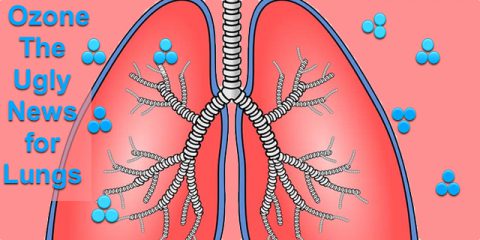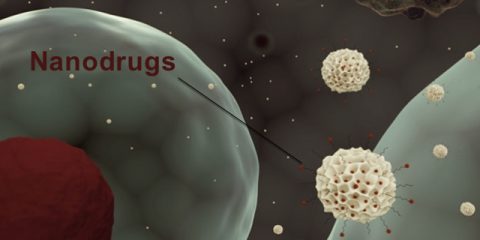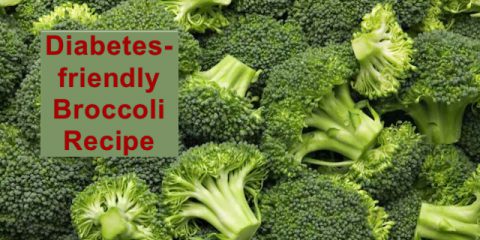The US Federal Government has an Office of the National Coordinator of Health Information Technology and nine years ago, Regina Holliday provided testimony at a workshop – the Health Information Technology (HIT) Policy Committee Meaningful Use Workgroup. This testimony described the harrowing experience of a patient with kidney cancer,...
Read MoreWhat Can Hospitals Do Better?
In March of this year, Dr. Harlan Krumholz, a cardiologist at Yale School of Medicine, asked this question on Twitter. I am curious to know from patients…esp those recently in the hospital…what do you wish we did better? What were the most obvious ways that quality could be improved. Throughout hospitalization & in the transition home. We should...
Read MoreOzone – The Good and the Bad and the Ugly News for Lungs
Smoking is the number one cause of chronic obstructive pulmonary disease or emphysema. But nonsmokers have been diagnosed with it more and more frequently. Why? The answer may be ozone. Good Versus Bad Ozone You remember the hole in the ozone layer. It is not that ozone. Ozone in the stratosphere is good ozone. Over six miles above the ground, ozone...
Read MoreDid You Know that Pain Psychologists Exist?
Chronic pain is not well understood, especially its mental and emotional facets. That’s why pain psychology as a psychological specialty is so beneficial. Pain psychologists are PhD level clinical psychologists who have completed an APA-accredited post-doctoral fellowship in chronic pain. Pain Sufferers According to a report by the CDC, approximately...
Read MoreWhy Speaking Up Matters And Why It Is Difficult
Recently researchers added a question to a common survey that patients can complete after they are discharged from the hospital. The question – “How often did you feel comfortable speaking up if you had any problems in your care?” available answers included: “(1) no problems during hospitalization, (2) always felt comfortable...
Read MoreGuest Post: Excerpts from “Remnant of My Heart”
Phantom pain–pain experienced after limb amputation– used to be understood as something “in your head” but now it is recognized as real; fMRIs have shown that peripheral and central nervous system changes occur which cause this pain. The brain image on the left shows how the person with phantom pain has a greater amount of their brain lit up...
Read MoreWatch Out: PFAS
When you buy bottled water, you are buying it for its purity compared to water from the tap. But you may be making a mistake. At least that is the case with bottled water that is on the shelves of many stores in the United States. Recently, the Environmental Working Group, a non profit based in Washington, DC released a report naming 610 places in 43 states...
Read MoreDiabetes Friendly Recipe: Skillet Steak
If you are looking for something to cook that has pretty easy clean up, try cooking in a cast iron skillet. Cast iron cookware has been around for a long time, since 220 AD. The process of sand casting iron cookware, which makes the cookware thinner was invented in England in 1707. Here is a recipe for your cast iron skillet that is diabetes friendly from...
Read MoreMaking the Right Choice for Prostate Cancer Treatment
The prostate is a tiny gland in a crowded part of the body. It is situated right below the bladder, right next to the rectum, near the blood and nerve supply for the penis. Unfortunately, one in nine men will get cancer in this tiny gland. According to the UsToo International prostate cancer website, nearly 3 million men in the US are living with prostate...
Read MoreStress Effects and Mindfulness Meditation
Every year since 2005, Gallup has surveyed over 150,000 people about their levels of positive and negative feelings. Last year the level of stress experienced across the world matched 2017 which Gallup named the “darkest year for humanity in more than a decade.” Fifty-five percent of Americans said they experience stress “a lot of the...
Read MoreNanodrugs
Nanodrugs have been around for some time. In fact, over 250 drugs using nanotechnology that have been approved by the FDA and are in clinical use. The name nanodrug or nanopharmaceuticals refers to the size of the particle that is created to house the medication. A nano is very tiny: nanoparticles are between 1 and 100 nanometers in at least one of its...
Read MoreGet More Broccoli In Your Diet
If you are looking for a vegetable to add to your diet, broccoli may be your best bet. It is rich in Vitamin K and C and also has 2.5 grams of protein per cup. Also, its total carb count is low only 3.5 grams in a cup. Here is a diabetes-friendly broccoli recipe – a wonderful way to get your vegetables! Roasted Broccoli with Garlic Tahini...
Read More













